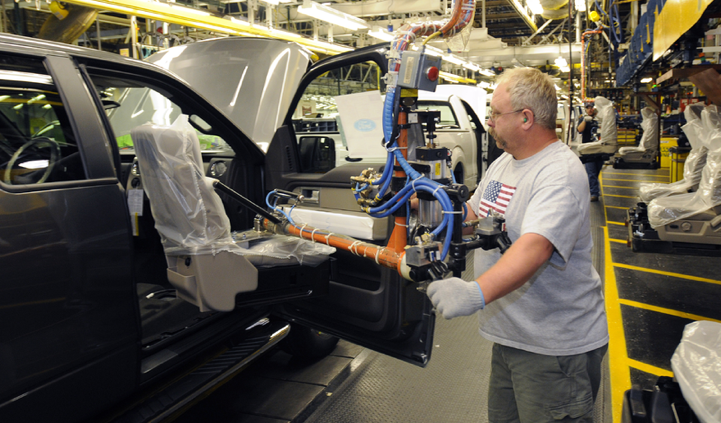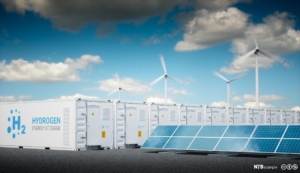CAFE Standards, the Real Trump University, and Chinese Capital
Here’s What You Need To Know
The cries of support and opposition were heard far and wide this week when President Trump signed an executive order that begins to undo much of President Obama’s Clean Power Plan. But, those focused on the really impactful policy changes should be looking to an announcement from two weeks ago. While in Michigan, President Trump announced a review of the Corporate Average Fuel Economy (CAFE) standards that President Obama had put in place in 2012. The Obama schedule had CAFE standards set to increase to 54.5 miles per gallon by 2025.
Depending on what the Trump Administration’s review of this policy determines, the changes could have a much greater impact on the economy than anything from the Clean Power Plan.
- This Is Not Just An Environmental Issue. Aside from being an environmental policy issue, CAFE standards also have an incredibly important impact on trade policy. The U.S. auto industry has always served as a powerhouse for American exports. But, if the Administration decides to reduce the emissions standards, as many expect, it could potentially put the industry in an awkward position and create difficulties for the industry’s export capabilities. Regardless of what U.S. regulators decide, Chinese and European governments are drafting increasingly stricter emissions standards which could create difficulties for U.S. automakers’ export capabilities. This would force the companies to make tough decisions about their vehicles based on where they sell them (and potentially where they manufacture them).
- The Auto Industry Isn’t Necessarily In Agreement On CAFE Standards. The American auto industry is certainly interested in discussing how CAFE standard increases can be adjusted to make their lives easier, but there are varying degrees of how much the different companies want these changes to go. Where each automaker falls on this spectrum is based largely on how far along they are in complying with the schedule set out by the Obama Administration. In the past almost five years, American automakers have spent billions in capital to plan for upcoming models to comply with the pending fuel standards. As much as they all want to see the standards made less stringent, the companies who have made these long-term capital commitments may not be especially interested in bailing out their less forward thinking competitors.
- CAFE Standards Will Impact Coming Debates On Transportation Innovation. Watching how the Administration addresses CAFE standards will be crucially important to the impending debates over major transportation sector innovations like autonomous vehicles and the growing number of car sharing services. Should the Administration ease CAFE standards considerably, it could allow for automakers to, in the long-term, spend less on making cars to fit government regulations and spend more on investing in these new innovation-driven industries that could provide alternative paths to reducing overall emissions in the U.S.
While the expectation is that the Administration will ease the aggressive standards goals set by the Obama Administration, it is not necessarily clear by how much they will ease them. On the same day Trump declared CAFE standards an impediment to increasing American auto manufacturing, the Administration clarified they would be leaving in place a waiver that lets California and other states enforce stricter rules within their borders. The outcome on this issue is far from a given, but a shift in these policies could produce major impacts for everything from the national economy to trade policy.
Subscribe to Receive Insights
"*" indicates required fields
News You Can Use
PRIVACY BATTLE MOVES TO THE STATES
With Republicans in control of Washington, the federal government appears ready to roll back several major areas of regulation, including those limiting access to consumers’ online data. This means consumer privacy advocates are moving their fights to the state level. There are currently several measures before the Illinois state legislature limiting what kind of data companies are allowed to pull from their users’ devices and accounts. Two specific Illinois bills aim to limit when companies can track consumers’ location through smartphone applications, and limit the use of microphones on internet connected devices. Similar laws are already on the books in California, Connecticut, New Mexico, Nebraska, and West Virginia. As more controversial items from the deregulatory perspective are tackled in Washington, look for activists to bring pressure to statehouses across the country to ‘re-regulate,’
STAGNATION OF INNOVATION
Despite continued headlines about disruptive startups being introduced, the numbers show that the American economy is actually stagnating. Companies established during the startup boom, like Uber and Facebook, have now moved from scrappy market disruptors to established tech firms. The firm birth rate, or the rate at which new firms enter the marketplace, has been declining every year since 2008. The rate at which firms were created was even outpaced by the firm death rate in 2010 for the first time on record. Economic growth and individual workers are suffering – a low churn rate of firms entering and exiting the marketplace means that fewer jobs are created each year. At a time like this, introducing a policy framework that encourages investment and reins in regulations will be necessary to increase job creation and bolster the economy.
SLOWER BANK LENDING AHEAD
A recent research note from UBS argues that the latest round of investor confidence displayed in high stock market valuations may be misplaced. The report points to a major slowdown in bank lending, with loan growth by domestic banks falling in almost every category. As a recent Axios article explains, “Companies are issuing less debt due to a mix of uncertainty regarding tax and spending policy, already high debt levels in the U.S. corporate sector, and the threat of higher interest rates.” Yet, investors are betting on stronger global growth, and assuming there will be no shocks to the global economy. An event like the 2014 oil price collapse could lead to greater constraints on growth and trigger a stock market pullback or correction. Trends in bank lending should be closely watched because they offer an early indication of big banks’ confidence in the economy and companies’ confidence in their own growth.
THE REAL TRUMP UNIVERSITY
As much as any president in recent history, Donald Trump has brought a unique philosophy to governing. The academic birthplace of much of this philosophy is a liberal arts college in California. Claremont McKenna College is home to, until recently, obscure political philosophers known as the “West Coast Straussians,” named for the philosopher Leo Strauss. The group is led by Claremont McKenna professor of government Charles R. Kesler, and their writings in The Claremont Review of Books on the 2016 election have served as the academic underpinning for Trumpism and an interpretation of its rhetoric into a full-fledged political philosophy. One notable essay, written by Trump national security official and former Claremont graduate student Michael Anton, declared, “2016 is the Flight 93 election: Charge the cockpit or you die.” The essay went on to outline the intellectual rationale to support then-candidate Trump that focused on the conservative establishment’s inability to fight “out-of-control government, politically correct McCarthyism,” and “a disastrously awful educational system.” Anton’s position inside the White House places a student of Kesler’s West Coast Straussianism in the room for countless major policy discussions with the President. With one of their own inside the West Wing, The Claremont Review of Books is likely to remain one of the best places to glean a quick understanding of the academic philosophy behind Trumpism .
HAVE THE CHINESE TAKEN SILICON VALLEY?
Recently, Chinese investments in the United States have moved away from industries like entertainment and toward American start-ups with products that could have military applications. For example, young tech firms working on cutting-edge artificial intelligence for military robots, rocket engines, ship sensors, and printers capable of producing high-tech components like computer screens for jets, have all received generous funding from Chinese companies with close ties to the government. These investments have concerned senior Pentagon officials, and the Defense Department has produced a white paper making the case that Beijing is directly encouraging Chinese investment in American startups specializing in these areas. Increased defense expenditures by the Trump Administration may alleviate some of this concern since the primary reason these American startups claim they have turned to China for funding is a lack of interest from the American military in their unproven technology. However, this issue will need to be closely watched as economic innovation and national security begin to overlap in increasingly precarious ways.



